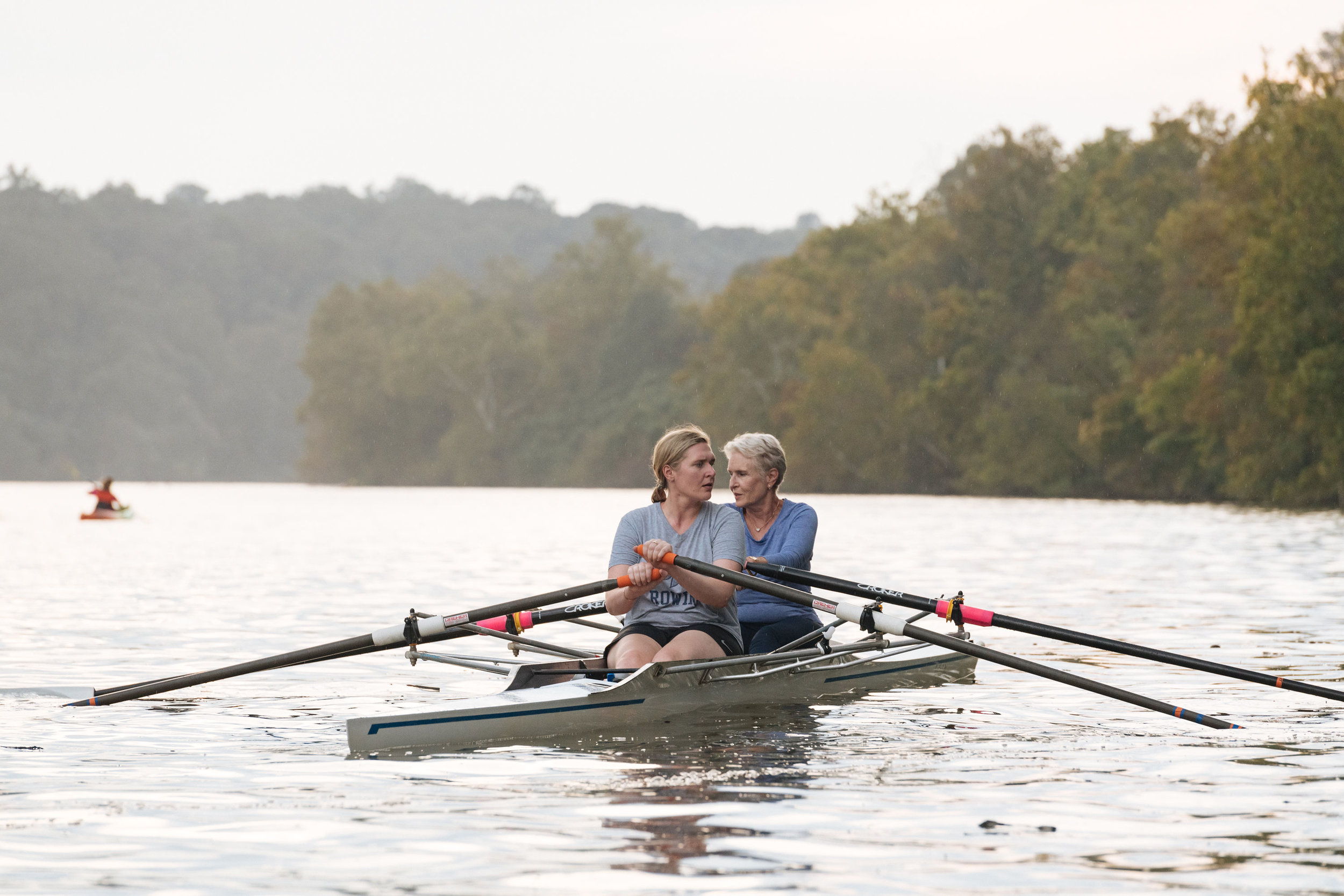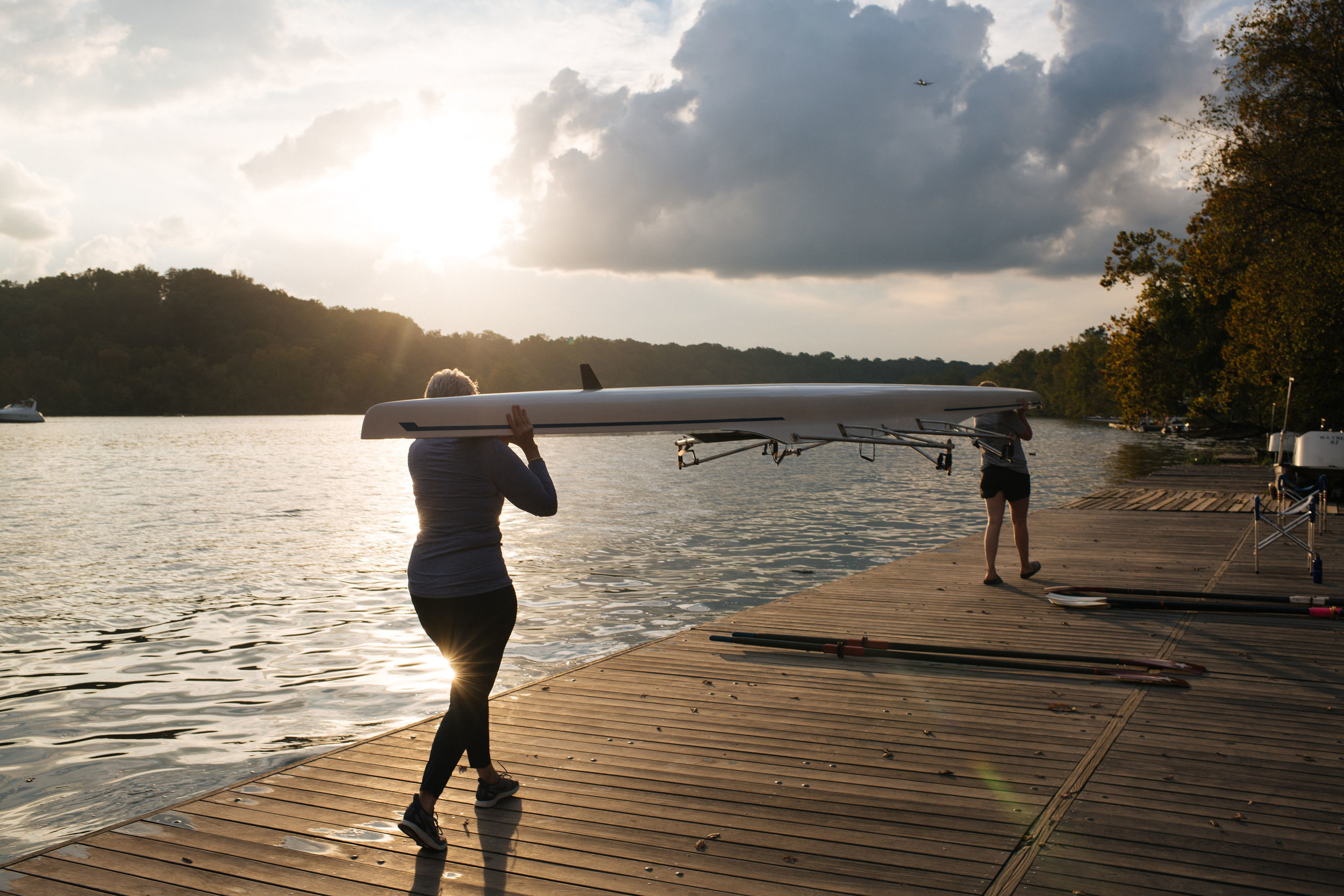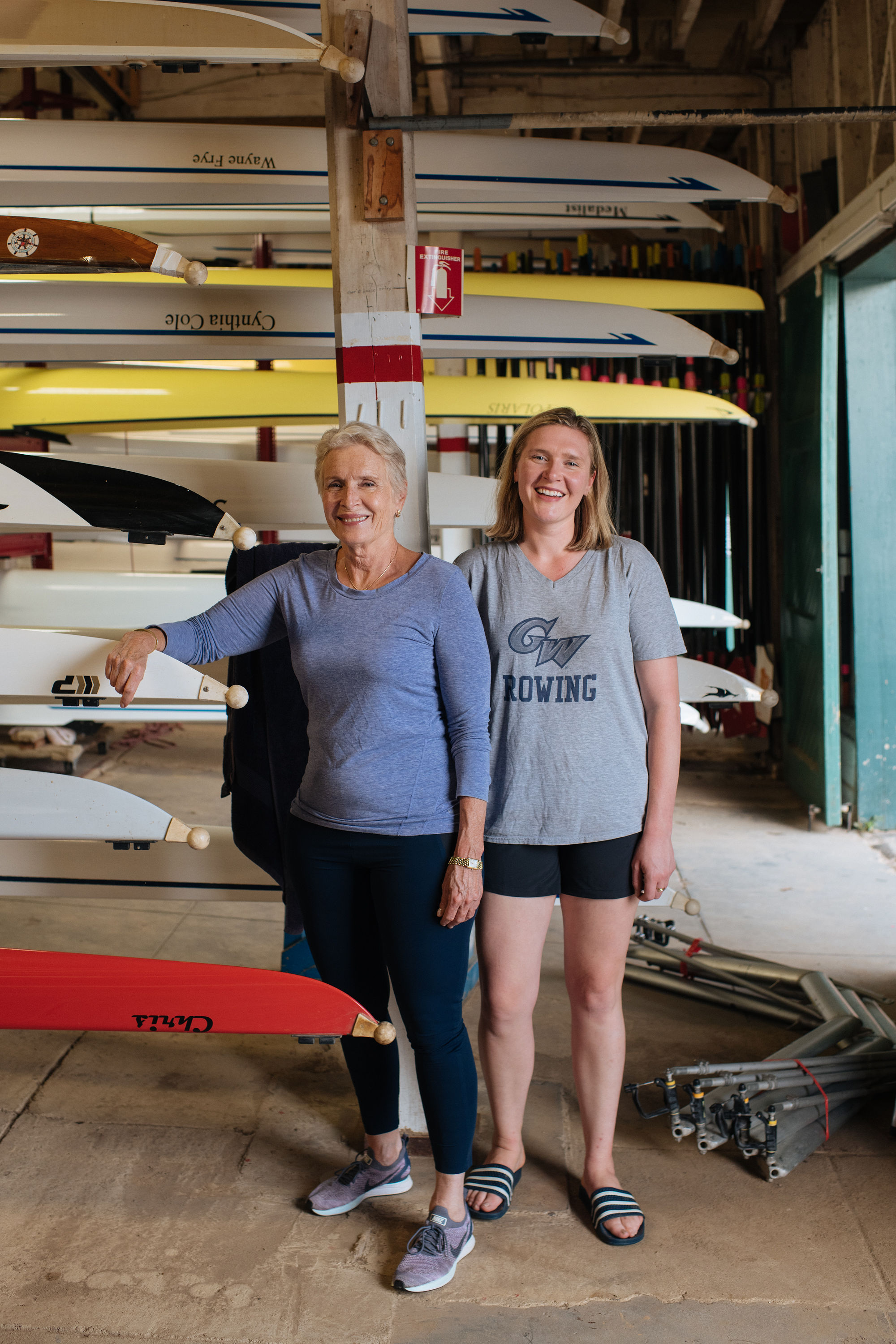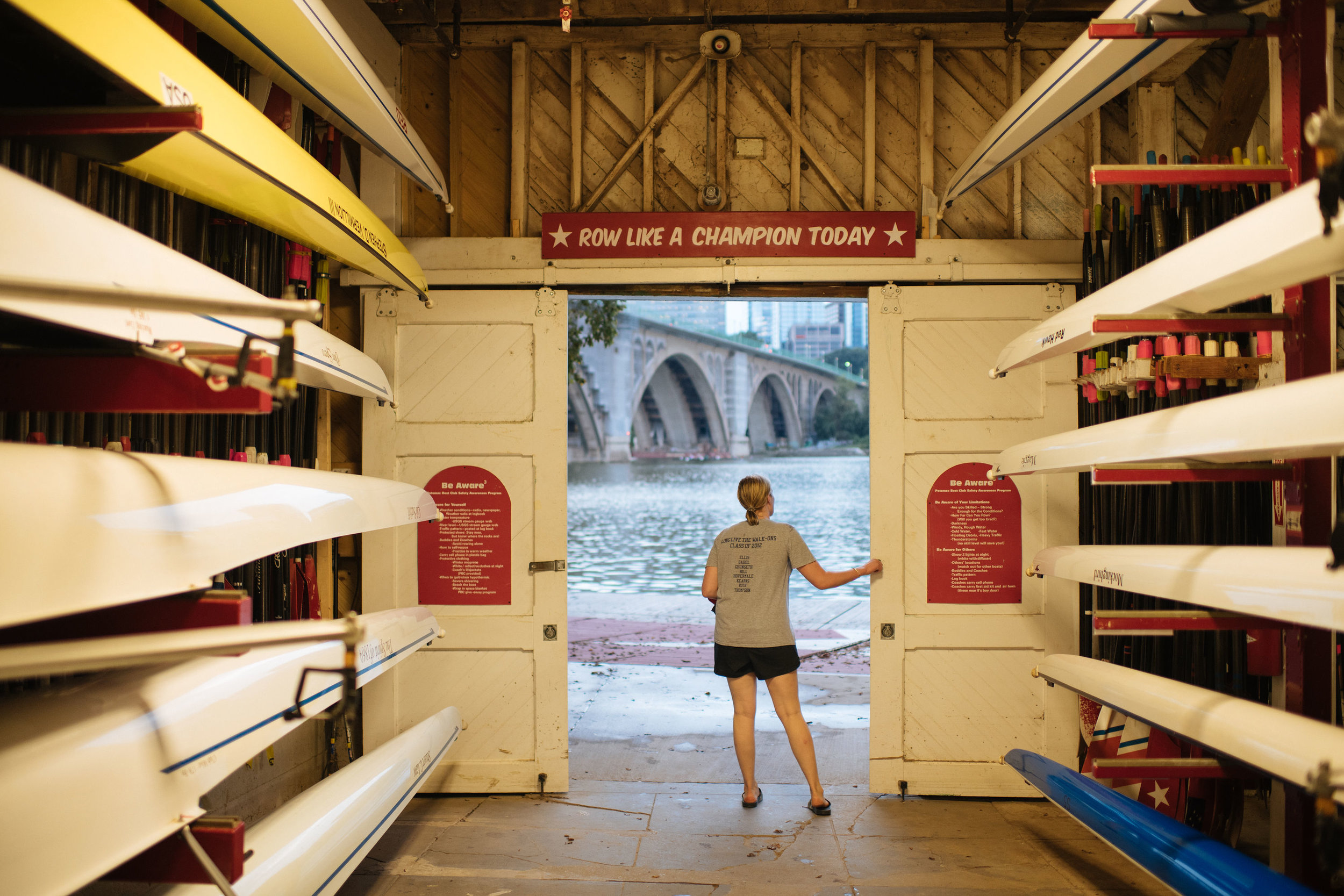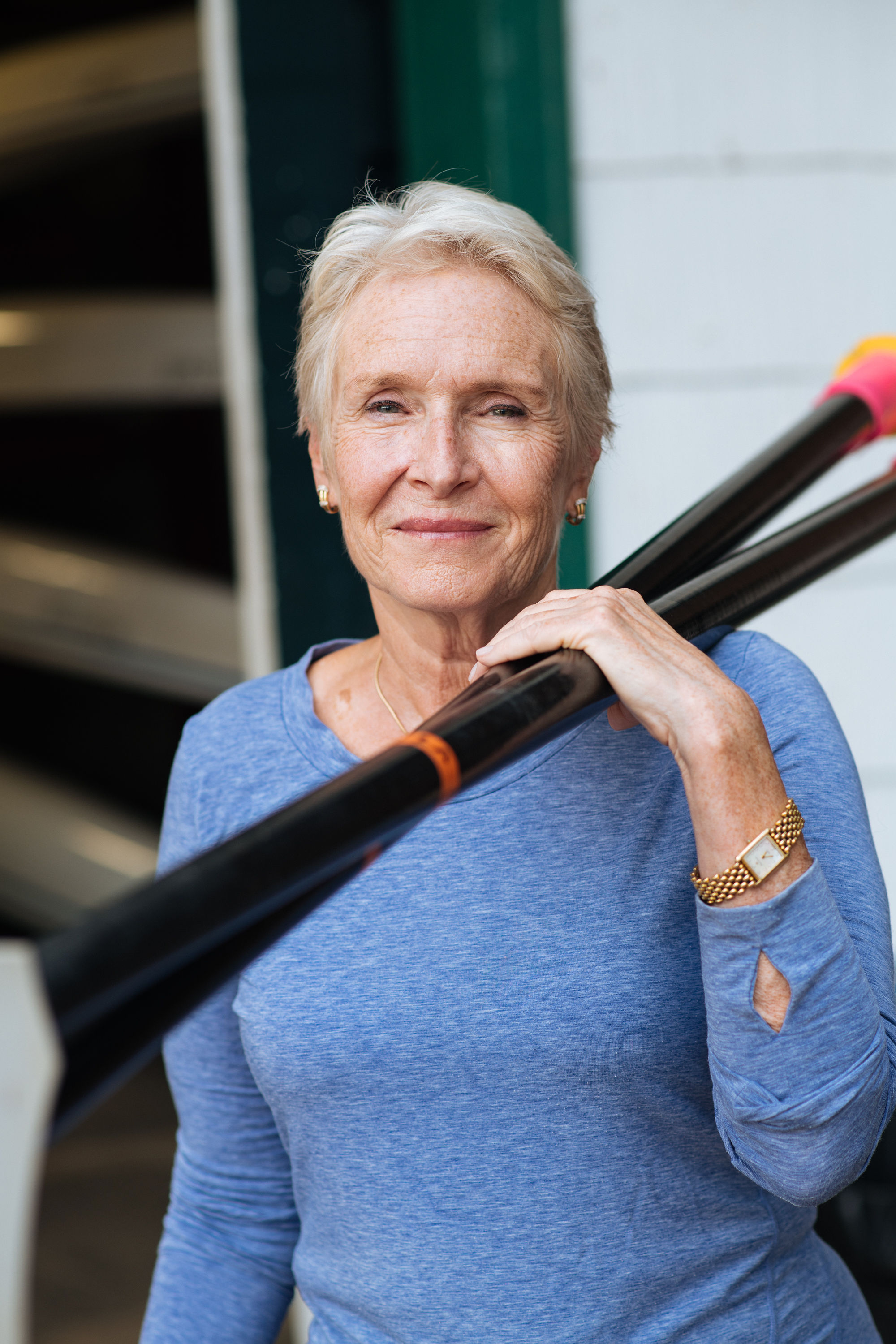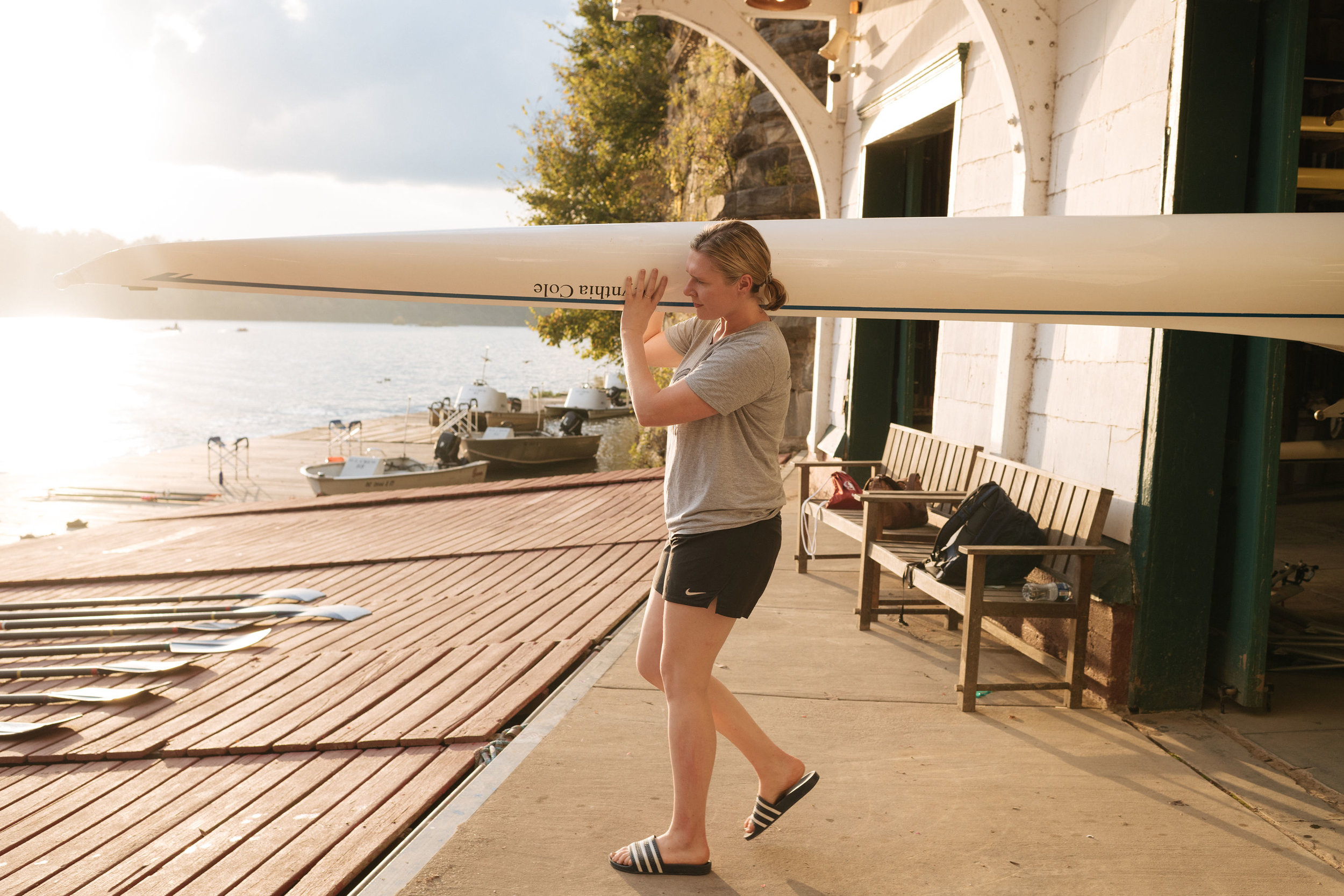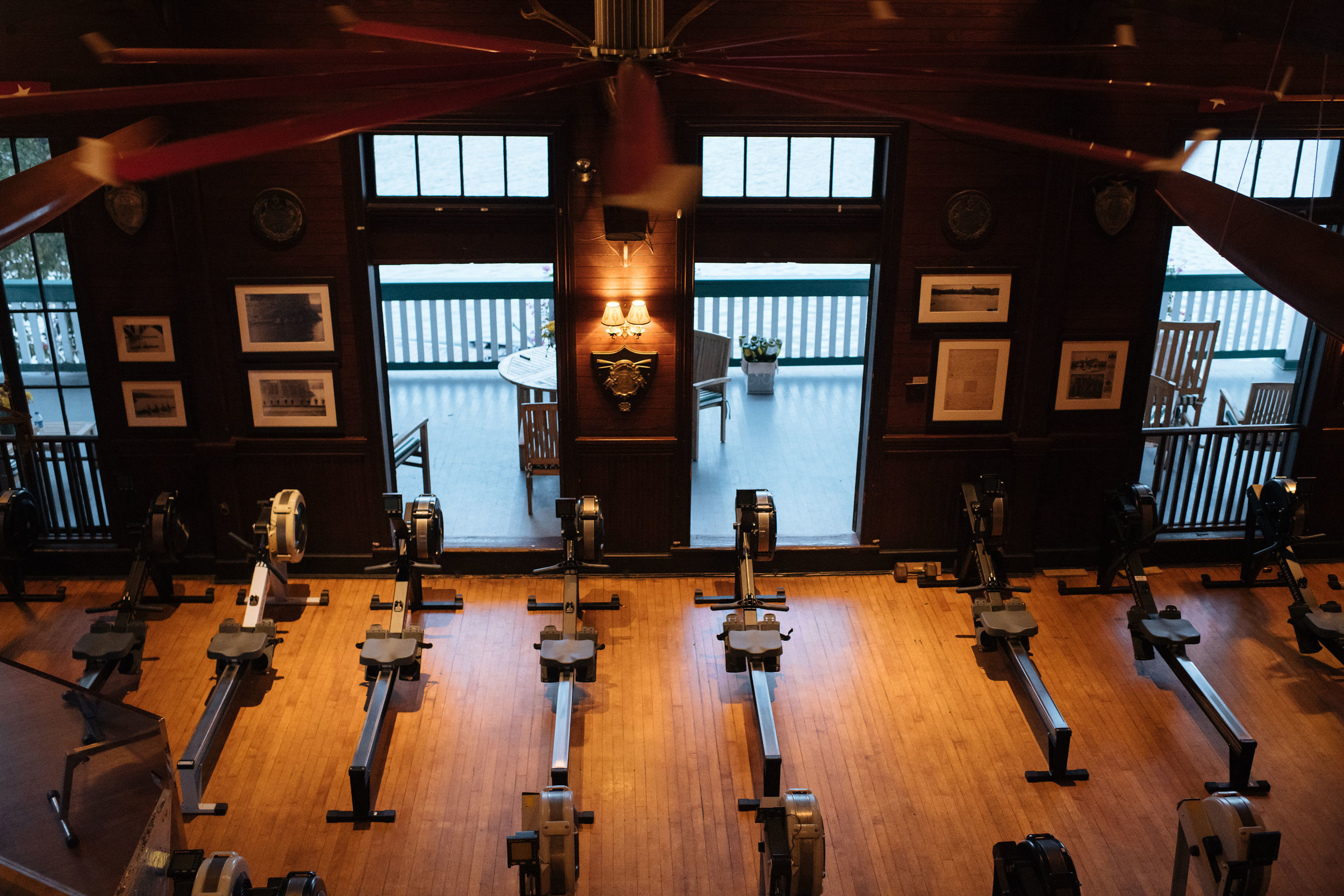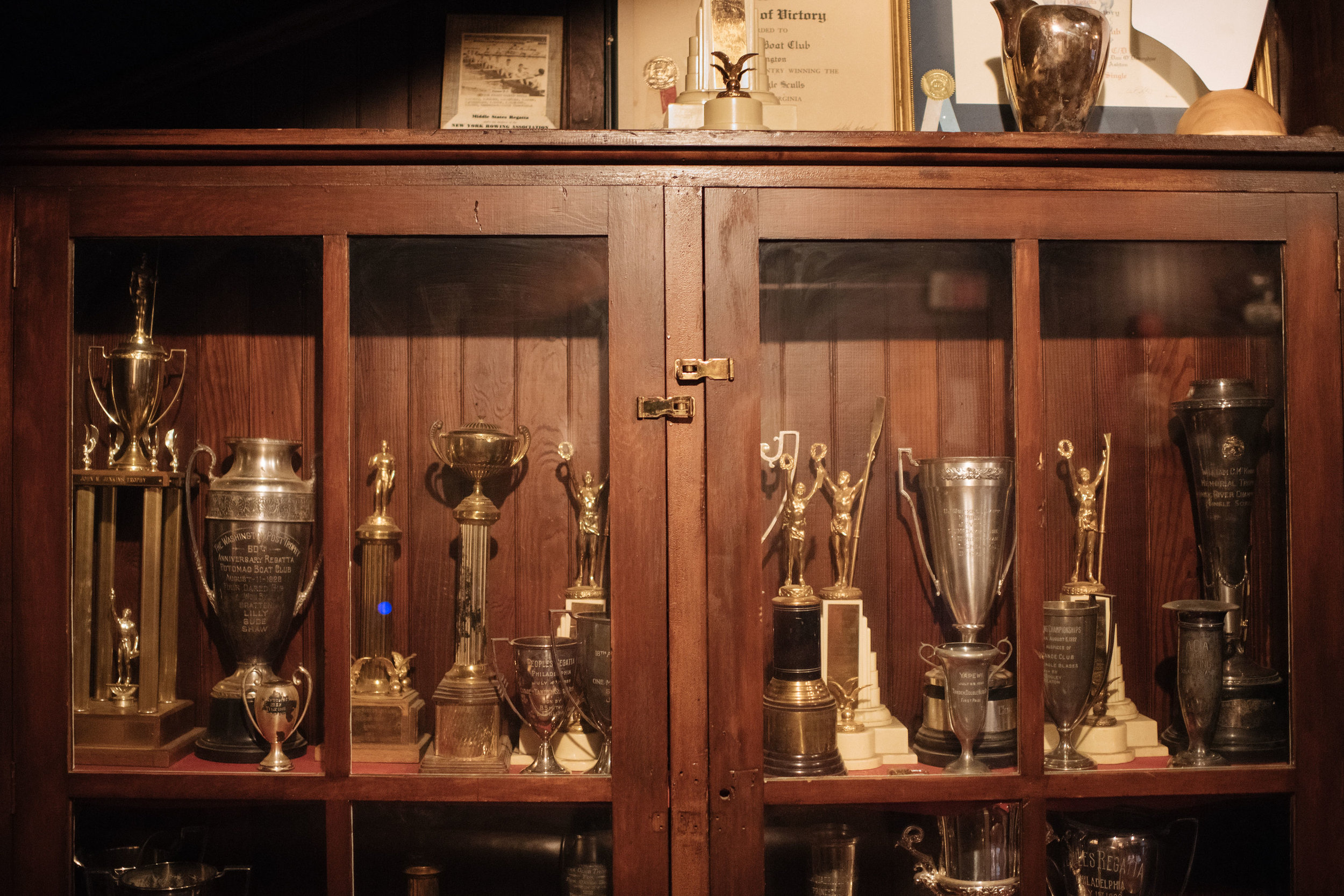‘We Both Row But Have These Totally Different Experiences’
Victoria Tigwell shares the Potomac with her daughter—two generations, punctuated by Title IX, shaping the diverging courses that led them to the same river.
The Minnesota native discovered rowing as a middle-aged woman, introduced to the sport by her best friend, who spent every morning on the water with her Olympian husband.
‘Water’s just part of life in Minnesota—whether you’re swimming or water skiing or fishing or skating or snowmobiling on it. With a bunch of other middle-aged women, we started a rowing club. We were self-taught. We watched videos, we read The Art of Sculling. I went to a small school, and we only had a gymnastics team. You find a lot of women in my generation finding sports their own way.’
Victoria’s daughter, Maryann Grunseth, is a scholarship athlete—sculling out of the St. Croix Rowing Club by the time she was 16, and making a name for herself as captain of the GW team.
‘What I love so much is that we both rowed, but had these totally different experiences,’ Maryann says. ‘My experience was just one generation apart, and I had all of these incredible opportunities. Title IX wasn’t so long ago. If I think about the female athletes who never got to be because those opportunities weren’t available to them, it breaks my heart. The generations and generations of women athletes who don’t exist. My mom never got to have the competitive experience I had, but had she never found rowing, I wouldn’t have, either.’
While Victoria is content to row for recreation and exercise, Maryann craves the thrill of sharing a boat with eight teammates. GW finished second in the conference Maryann’s senior year—the pinnacle of four years on the water that shaped her collegiate experience.
‘I can’t think of being in college and not being an athlete, not being a rower. Those two things are so tightly tethered for me. The fundamentals of rowing are timing and balance, and to be in sync in that way is a really crazy sensation. I don’t know how to describe it. When a boat has that chemistry, it’s the most incredible feeling you’ll ever have. When you’ve experienced that, it makes it really hard to just go get in a boat and have fun.’
‘I know so many people who were competitive rowers in college and they don’t want to row now because they know they’ll never capture that again,’ Victoria says. ‘There’s a rhythm to it. That bond, that relationship of nine people in this boat doing the same thing together, over and over. That camaraderie is the unspoken part. I never had that. For me, I like being by myself.’
Despite their different motives, both agree the Potomac is an ideal rowing river. Past Three Sisters, Victoria and Maryann say the water is flat and peaceful, save the occasional noise from the GW Parkway. They prefer to head out early, long before amateur paddle boarders with shaky legs enter the water—alone with the bald eagles and wood ducks.
‘When Maryann first started rowing, she called and said, ‘When you row upstream by Three Sisters, it’s like what it must have been like for the early settlers. No buildings, nothing—just the gorge of the river.’
Maryann misses starting each morning on the water—currently taking time off to attend grad school. One of the ‘notoriously Type A rowers,’ she says she’d love to find her match and row pairs competitively.
The mother and daughter duo row together on occasion, and have both volunteered with Athletes Without Limits—an organization run out of the Anacostia Boat Club that pairs athletes with physical and intellectual disabilities through training and racing. Maryann says although there is a surprising level of age diversity within the sport, programs like this one are expanding every other form of inclusion.
‘Rowing has predominately been the sport of white men. For so long, it’s been the sport of the Ivy Leagues. Recently, there’s been a push to make it more inclusive for women, minorities, and those with disabilities. It’s a really interesting time in rowing because it’s expanding. It’s not just a coastal sport anymore.’
Victoria and Maryann have rowed coast to coast, and everywhere in between. The challenge is finding a boathouse to store the big boats—in particular shortage around DC. It look Victoria five years to secure a rack at Potomac Boat Club.
Grad school aside, only flooding, lightening, wind, and the occasional ice keep them off the water when they are in town. Much of rowing is muscle memory, yet both say incredible focus is still required.
‘I’m not out there wondering about my grocery list,’ Victoria explains.
Off the water, there’s more time for contemplation.
In 1976, just four years after the meager first draft of Title IX was written, 19 female rowers stripped naked, painted Title IX on their bodies, and marched into the Yale Director of Physical Education’s office. They were tired of riding the bus home cold and wet, with no access to shower facilities.
More than 40 years later, Victoria stands on the front porch of Potomac Boat Club, watching the river go to sleep.
‘There’s a real transition in the life of a river.’
